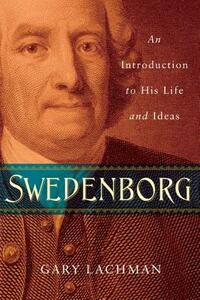You need to sign in or sign up before continuing.
Take a photo of a barcode or cover
3.5 stars. Lachman gives a brief, easy-to-comprehend introduction to Swedenborg’s life and writing, which is both the strength and the weakness of this book. The first half focuses on his life as a scientist and explorer of inner spaces, whereas the second half examines his spiritual (some might say schizophrenic) writings on heaven, hell, and altered mystical states. Lachman aims to be open-minded, neither embracing Swedenborg completely nor panning some of his more extreme claims. Instead, he tries to position Swedenborg in relation to other intellectuals who examine altered states, from Blake to William James, Rudolf Steiner, and Jung. Unfortunately, this has the effect of creating tangential passages that move away from Swedenborg’s claims under the guise of expanding on or contextualizing his ideas.
At times, I wished for a little more insight and detail into the nuts and bolts of Swedenborg’s claims rather than comparisons to other writers. This was especially the case in the final chapter, when Lachman gives a strong synthesis of James and Ouspensky’s writings on drugged altered states with an attempt to somehow connect it to Swedenborg’s angelic conversations, which were not due to the influence of drugs. It’s almost as if Swedenborg’s claims were a little too esoteric, so Lachman felt the need to bring in these other parallel conversations before concluding, “Swedenborg’s ideas were sort of like this.” As with other sections of the book, I also felt that Lachman was attempting to legitimize Swedenborg’s more extreme views by comparing him to thinkers who are more reputable to modern readers.
Even so, this book gave me the overview of Swedenborg’s life and writing that I needed before diving into his works. The Selected Bibliography was especially helpful. The book also seemed like a good starting point for further studying the esoteric writings that emerged after Swedenborg, which Lachman covers in his other books (and often refers to in this one). Since my concern with Swedenborg has more to do with his literary influence on Balzac, Goethe, Blake, the Symbolists, etc., I found this to be an acceptable introduction for a popular audience. However, those interested in more a intense or academic study of Swedenborg’s philosophy and writings might wish to look elsewhere.
At times, I wished for a little more insight and detail into the nuts and bolts of Swedenborg’s claims rather than comparisons to other writers. This was especially the case in the final chapter, when Lachman gives a strong synthesis of James and Ouspensky’s writings on drugged altered states with an attempt to somehow connect it to Swedenborg’s angelic conversations, which were not due to the influence of drugs. It’s almost as if Swedenborg’s claims were a little too esoteric, so Lachman felt the need to bring in these other parallel conversations before concluding, “Swedenborg’s ideas were sort of like this.” As with other sections of the book, I also felt that Lachman was attempting to legitimize Swedenborg’s more extreme views by comparing him to thinkers who are more reputable to modern readers.
Even so, this book gave me the overview of Swedenborg’s life and writing that I needed before diving into his works. The Selected Bibliography was especially helpful. The book also seemed like a good starting point for further studying the esoteric writings that emerged after Swedenborg, which Lachman covers in his other books (and often refers to in this one). Since my concern with Swedenborg has more to do with his literary influence on Balzac, Goethe, Blake, the Symbolists, etc., I found this to be an acceptable introduction for a popular audience. However, those interested in more a intense or academic study of Swedenborg’s philosophy and writings might wish to look elsewhere.
